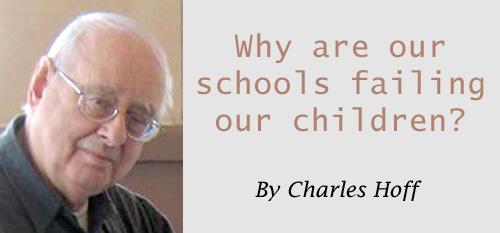In the business of education, who are the suppliers and who are the customers?
Wed, 08/26/2009
There are many aspects of education that are quite like that of manufacturing and assembly.
Only in a few Socialist countries are there any "automobile manufacturing" plants. In the Western world we have "automobile assembly" plants.
These plants "manufacture" nothing. They assemble parts from many manufacturers. The Boeing Company is now trying to do this and has learned some very significant lessons that the "subs" often have different priorities than the assembler.
What Boeing is learning, and others could have told them, was that you have to have a very close, and constant, relationship with your suppliers.
For several years I worked for a company that "made nothing," but assembled about 1,800 end products. It was the leading company in the market by a significant margin and the competitors products were often called our products and often had the same model numbers as ours.
When I first went to work for the company they sent me off to the assembly plant for a day to see what happened there.
I was aghast when I first got there by the number of people who were involved in "inspection."
Their job was to make sure that no parts made it to the many assembly floors that did not meet specifications.
If they found defective parts they were to be in immediate touch with the supplier to determine how to remedy the situation. They had 18,000 suppliers! When parts were not acceptable they were returned to the supplier for either "rework" or scrap.
Ronald Reagan's often quoted phrase, "Trust but verify," seemed to be in action.
In the case of the company I worked for, the product had "work out of the box." If it failed there was a serious possibility that injury or death could be the outcome.
We are now all familiar with "recalls" of various products.
Quite often it's the inspection process of the assembler that has failed to detect the problem and participated the recall.
How is education like this kind of "assembly" process? Schools, the assembler, don't make any of the "parts."
It would be great if the finished product worked out of the box every time.
Where it differs is that once parts were inspected in the receiving department, they never left the plant. Here the assembly leaves the plant approximately 2100 times before it arrives at the shipping (graduation) department!
In manufacturing this would call for an extraordinary level of communication between the supplier and the assembler. This partnership would have to be very strong and it would vary with the competence of the supplier. Some would require constant supervision; in Boeing's case they have employees on the manufacturer's site every day, while others do not require that level of supervision.
In education where there is this 2100 cycle of outsourcing, there is nothing like this, and yet we are hoping for a "works out the box" end product!
The School Board has been holding a thoughtful debate on "Who is the customer?" They debate between the "student," who in this analogy is the end product, and the "parent" who is the supplier.
If we want this end product to "work out of the box" perhaps the customer is the "student at the completion of assembly," taxpayers, who paid for the product, and society?
In Washington State, according to Education Week, we have 62.4% of our students graduating. Do all of these work "out of the box?"
There are many who would suggest that "graduation" in this state has some pretty vague specifications.
Some of these "graduates" might not meet the specifications of either employers or admissions offices of higher education.
Education Week also says that Federal Way has only 45.7% of its students graduating.
What would an assembler do in this case? I am sure that they would develop a much stronger relationship with their suppliers!
Superintendent Murphy suggested that the School Board may want to look at putting more of its resources into this.
I think that this would be very wise move.
Where this gets touchy, with some, is that moving limited resources to this area requires reducing funding elsewhere.
I am sure I could find areas that are not "improving" the finished products' acceptance.
It also requires a new relationship with suppliers. In assembly plants there is no tolerance for suppliers who cannot provide components that do not meet specifications, as there are just too many consequences.
Education and strong relationships with suppliers is a top priority.
We want the finished product of the Federal Way schools to be "out of the box ready," don't we?


